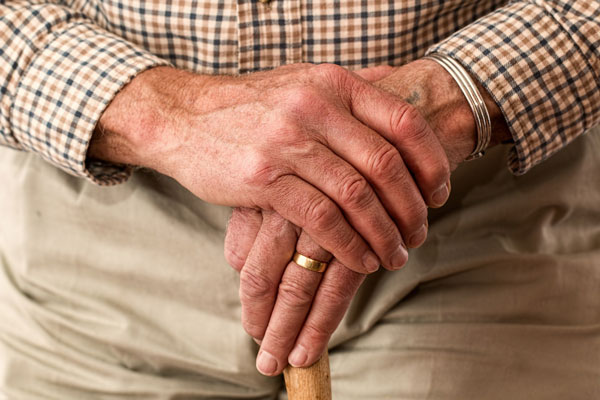Both issues are more common for individuals over 65 so older individuals should make sure to practice behaviors that will reduce the risk of falling.
By reducing your risk of sarcopenia and osteoporosis, you are reducing your risk of serious injury after a fall. The loss of muscle mass will gradually get worse over time and require special care and other safety measures to be put in place. Falls can lead to further physical decline and quality of life. Feelings of helplessness, social isolation and depression are also common after a fall as activities and social events are limited.
Here are some tips on how to build your muscle mass and help increase your bone density:
- Get more active – you can start with what you feel comfortable with such as raking leaves or going for a walk
- Balance exercises (prevent falls)
- Strength and/or resistance training exercises
- Get enough Calcium in your diet
- Greek yogurt (protein and calcium), cheese, cottage cheese, leafy vegetables (i.e., kale), almonds, oranges, salmon
- Increase your protein intake (preferably lean)
- Chicken, fish, pork, turkey, eggs, egg whites, kidney/chickpea beans, peanut butter (2 tbsp), veggie burgers, tofu
- Try to get as much vitamin D from your diet as possible
- Fortified vitamin D milk or almond milk, mushrooms, salmon, tuna, beef liver, cheese, egg yolks have small amounts of vitamin D in them
- Due to less sun exposure in the Northern Hemisphere, most people need to take vitamin D in a supplement form as little foods from your diet provide adequate vitamin D.
- The adequate intake of vitamin D for most healthy individuals, also known as the Recommended Daily Allowance) is:
- Adults 19–70 years: 600 IU
- Adults 71 years and older: 800 IU
- Pregnant and breastfeeding women: 600 IU
- The Upper Limit (UL) of vitamin D is 4,000 IU/day for 9+ years old
- Take a complete MVI (that has vitamin D in it) to ensure adequate intake. If you are vitamin D deficient, you most likely will be prescribed an additional vitamin D supplement – this can be discussed with your doctor.
Improve your Health through your Diet and Behavior
Improving your diet with the steps listed above will help reduce the risk of bones becoming frail and lead to a healthier lifestyle. Making changes to what you eat can be difficult so it’s a good idea to make small incremental changes to introduce new foods so you can find what works best. Nutritional Therapy Services at Behavioral Nutrition are available to help you find foods to incorporate into your diet that you’ll enjoy and practice healthy eating behaviors.
Our Nutritional Therapists understand that everyone is different and work hard to find solutions that will be sustainable for each patient. Contact us today to learn more about how Nutritional Therapy can help you improve your diet as you age.



